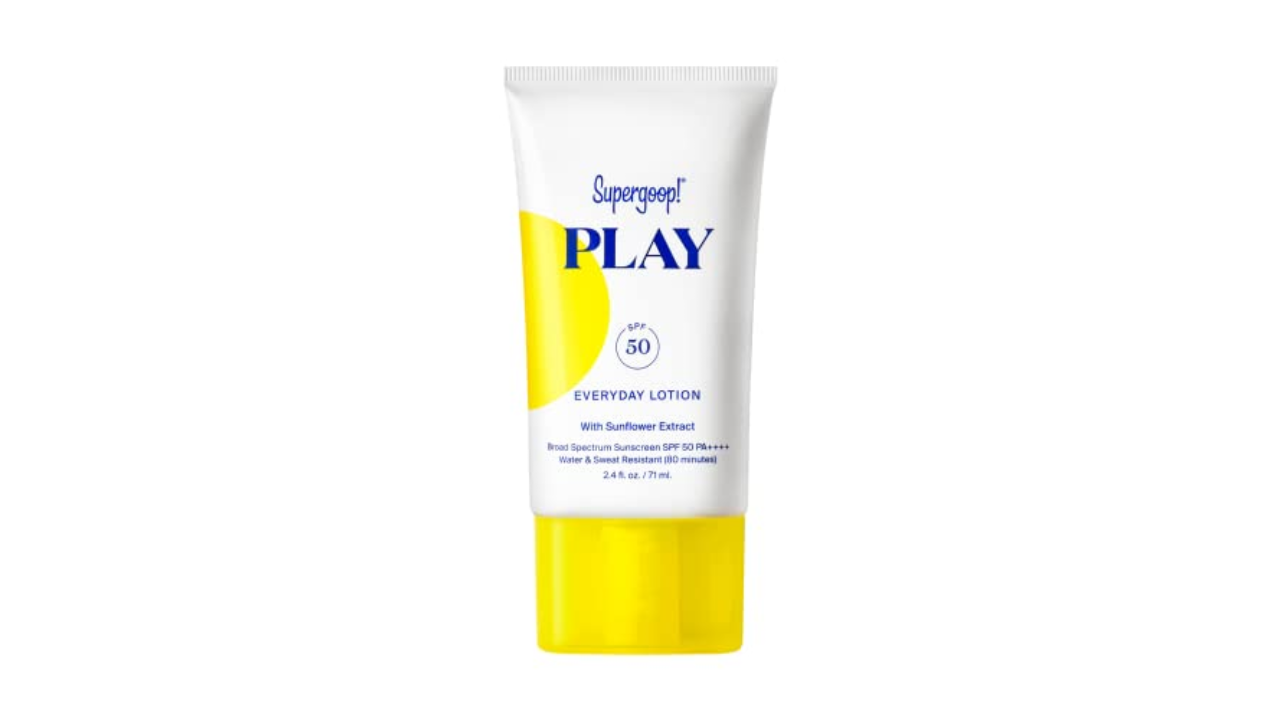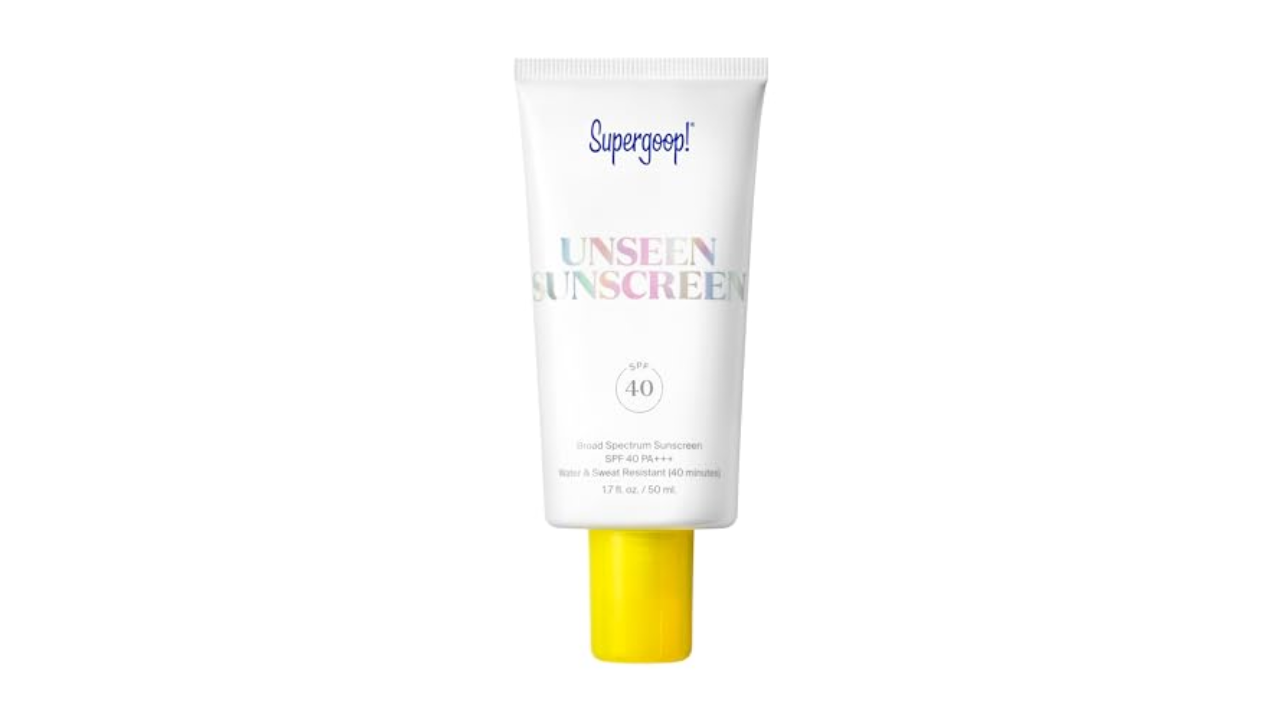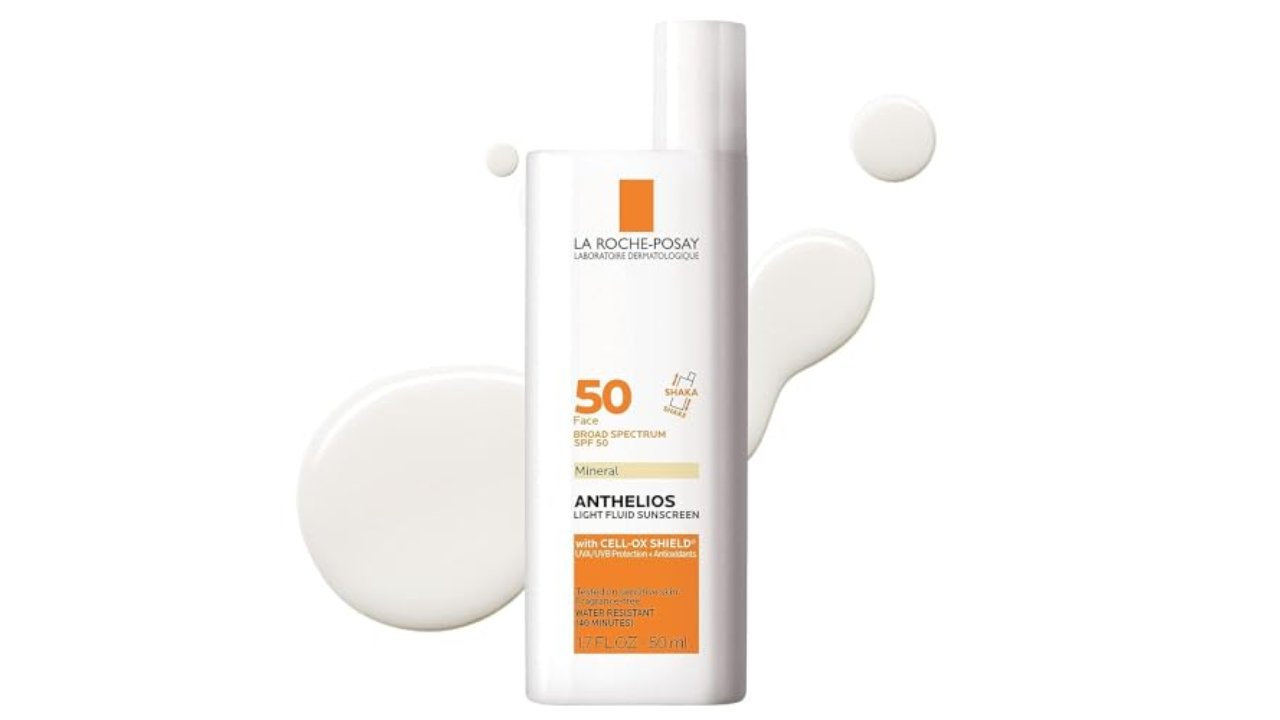We independently evaluate the products we review. When you buy via links on our site, we may receive compensation. Read more about how we vet products and deals.
The best reef-safe sunscreens of 2025 help keep oceans clean
We compiled the best reef-safe sunscreens to protect marine life (including coral reefs) while protecting your skin from the sun's rays.
Reef-safe sunscreens are a relatively new — but necessary — phenomenon. According to the National Park Service, 4,000 to 6,000 tons of sunscreen washes off swimmers and into oceans worldwide every year. The National Ocean Service reports that common sun protection ingredients including the chemical oxybenzone — found in many popular sunscreen lotions and sprays in the U.S. — are contributing to the deterioration of coral reefs, which are essential for the globe's marine life. In fact, the effects of chemical sunscreen ingredients are dire enough that popular tourist destinations including Hawaii and Key West, Fla., have banned the sale and use of these products altogether.
The result is a spate of new and improved reef-safe sun protection lines that promise high-quality SPF without any of the environmental harm.
Table of contents
Update, Jan. 3, 2025: We checked all product prices and availability. Our number one pick for the best reef-safe sunscreen remains unchanged.
Best reef-safe sunscreen overall
Active ingredients: Zinc oxide | SPF: 50 | Mineral or chemical: Mineral | Size: 5.8 ounces | Water-resistant: Yes | Cruelty-free: Yes
From an environmental standpoint, Thrive's sunscreen has a ton going for it: It's reef-safe, made from ingredients that support regenerative farming and contained in a tube that's composed of 100% recycled plastic. What's inside is just as good: a potent zinc oxide mineral sunscreen that absorbs into skin easily with zero white cast (at least on my fair skin). The scent is a kind of citrus-hippie, which I don't mind but some users found a bit strong.
- Earth- and reef-friendly
- Natural ingredients
- Absorbs fast and easily
- No white cast
- Texture may be too greasy for some
Other top reef-safe sunscreens we recommend for 2025
Active ingredients: Zinc oxide, titanium dioxide, iron oxides | SPF: 45 | Mineral or chemical: Mineral | Size: 1.7 ounces | Water-resistant: Yes | Cruelty-free: Yes
Peter Thomas Roth's all-mineral, tinted facial sunscreen ticks all the boxes: It's water-resistant, provides broad-spectrum UVA/UVB sun protection, works particularly well to reduce redness and is nonirritating for sensitive skin. Plus, it's lightweight but still hydrating and skin-nourishing with a high-quality SPF 45. The tint also seems to work for nearly every skin tone, though those with the fairest of skin may find it too dark.
- High-quality mineral sunscreen
- Lightweight but still moisturizing
- Tint works for most skin tones
- Water-resistant
- Some reviewers find the tint too dark
Active ingredients: Zinc oxide | SPF: 50+ | Mineral or chemical: Mineral | Size: 0.5 ounces | Water-resistant: Yes | Cruelty-free: Yes
Australian brand Blue Lizard consistently puts out some of the best sun protection on the market, and this reef-safe, fragrance-free zinc oxide stick is small enough to carry wherever you go. It's easy to apply, not sticky or greasy and is water-resistant for up to 80 minutes.
- Great for kids
- Fragrance-free
- Portable
- Good for sensitive skin
- Affordable
- Small size runs out quickly, some reviewers complain
Active ingredients: Avobenzone, homosalate, octisalate, octocrylene | SPF: 50 | Mineral or chemical: 'Clean' chemical | Size: 2.4 ounces | Water-resistant: Yes | Cruelty-free: Yes
This broad-spectrum sunscreen is sweat-resistant for 80 minutes, and it absorbs lightning-fast. The gentle formula is great for all skin types (it's especially excellent for kids). It's designed to be used on both the face and body, which makes it convenient and versatile. It's the only sunscreen I pack on vacation — especially since it comes in a number of sizes, including both a tiny travel tube and a handy Supergoop Play Everyday jumbo size, an 18-ounce tub with an easy-to-use, family-friendly applicator pump.
For more info, check out my in-depth review of Supergoop.
- Lightweight
- Fast-absorbing
- Broad-spectrum SPF 50 sunscreen (protects against both UVA and UVB rays)
- Family-friendly (gentle and works for many types of skin)
- Moisturizing
- No white cast
- Texture may be too greasy for some
- Contains chemicals
Active ingredients: Avobenzone, homosalate, octisalate, octocrylene | SPF: 50+ | Mineral or chemical: 'Clean' chemical | Size: 1.7 ounces | Water-resistant: Yes | Cruelty-free: Yes
This chemical sunscreen from Kiehl's lacks common reef-harming culprits, but it still provides powerful sun protection. It's also lightweight and ultra-hydrating, while helping to reduce the appearance of fine lines, wrinkles and sunspots. The multitasker also helps smooth the texture of your skin.
- Dermatologist-tested
- Suitable for all skin types
- Absorbs quickly
- No white cast
- Noncomedogenic
- Infused with skin-nourishing ingredients like vitamin E
- Contains chemicals
Active ingredients: Zinc oxide | SPF: 45+ | Mineral or chemical: Mineral | Size: 2.5 ounces | Water-resistant: Yes | Cruelty-free: Yes
A luxurious, extra-silky mineral sunscreen cream that combines highly protective zinc oxide with bee propolis and vitamin C to nourish your skin, Epicuren's formula is also a favorite of actress Tracee Ellis Ross. "It looks natural. Some sunscreens are not great if you're a person of color," she explained to Harper's Bazaar in 2017.
- Blends seamlessly with deeper skin tones
- Natural formula
- Broad-spectrum coverage
- Lightweight
- Skin-nourishing
- Expensive
Active ingredients: Avobenzone, homosalate, octisalate, octocrylene | SPF: 40 | Mineral or chemical: 'Clean' chemical | Size: 1.7 ounces | Water-resistant: Yes | Cruelty-free: Yes
If you are looking for a sunscreen that also acts as a makeup primer or need your sun protection to be completely invisible (that is, with no sheen), this one's for you. It's scent-free and weightless, and provides SPF 40 protection. A "clean" chemical sunscreen, this wildly popular formula is free of oxybenzone and octinoxate. Though anyone can use it, it works particularly well for oily or acne-prone skin.
Supergoop has a range of sunscreens that we've tested, and each is formulated to be gentle on sensitive skin.
- Invisible
- Weightless
- Good for oily and acne-prone skin
- Doubles as a makeup primer
- Matte finish isn't the best for mature skin
- Pricey
- Contains chemicals
Active ingredients: Zinc oxide and titanium dioxide | SPF: 40 | Mineral or chemical: Mineral | Size: 3.5 ounces | Water-resistant: Yes | Cruelty-free: Yes
Cotz was founded in 2002 by reconstructive plastic surgeon Dr. Harry Fallick, who set out to make a gentle, versatile everyday sunscreen his patients would actually use. The result is this water-resistant SPF 40 mineral sunscreen, which not only protects but soothes sensitive skin. The ultra-silky cream is free of dyes, fragrances, oils, preservatives, gluten and phthalates.
- Broad-spectrum coverage
- Works for body and face
- No white cast on most skin tones
- Fragrance-free
- Some users don't like the gloopy, thick texture
Active ingredients: Titanium dioxide, iron oxides | SPF: 50 | Mineral or chemical: Mineral | Size: 1.7 ounces | Water-resistant: Yes | Cruelty-free: No
This award-winning sunscreen is considered among the best in the world. The texture is lightweight, almost watery (like a thin day cream), and it soaked into my skin on contact.
Once on, the formula looked natural, with no greasy feel, no stickiness and no glossy sheen. In fact, this is my only complaint about the Anthelios face sunscreens: They're matte, which is not always the best for mature skin. On the plus side, they're fragrance-free, and, even when I went super close to my eyes, the cream didn't sting.
You can read my in-depth review of La Roche-Posay Anthelios sunscreen here.
- Lightweight
- Smooth, easy application
- Leaves skin feeling soft
- Protects and nourishes skin
- Pricey
- Matte finish isn't the best for mature skin
Active ingredients: Actinica zinc oxide | SPF: 50+ | Mineral or chemical: Mineral | Size: 3.4 ounces | Water-resistant: Yes (but limited) | Cruelty-free: Yes
The name may be a mouthful, but dermatologists swear by this one. Doctors we spoke to particularly recommend it for patients who have known sun damage. Isdin's Eryfotona Actinica is one of the best mineral sunscreens, it's lightweight, it won't leave your skin feeling greasy and it has UVA/UVB protection. It also has DNA-repairing enzymes and vitamin E to help fight UVA-induced skin damage.
- Good for sensitive skin
- Contains skin-repairing enzymes
- Broad-spectrum SPF
- Fast-absorbing
- Lightweight
- Scent-free
- Expensive
- Water-resistant for only 40 minutes
Factors to consider when choosing a reef-safe sunscreen
Active Ingredients: Zinc oxide is a common ingredient in mineral sunscreens. It’s known to help with skin irritation and improve cell turnover. Titanium dioxide is another common ingredient to look out for — it helps protect your skin from UV rays and is gentle enough for even sensitive skin types. Additionally, you’ll want to look for hydrating ingredients like hyaluronic acid, glycerin or ceramides.
SPF: The American Academy of Dermatology Association recommends using a sunscreen with an SPF of 30 or higher. Anything with SPF 30 will block 97% of UVB rays.
Mineral or chemical: This choice is highly individual and depends on your preference, but both are effective in helping protect your skin. Mineral sunscreens take a bit longer to absorb, but they’re more suitable for those with acne-prone or sensitive skin. Chemical sunscreens are more lightweight and sink in quickly; plus they’re usually more sweat resistant and water resistant.
Water resistant: In order for a sunscreen to be labeled water resistant, it must be tested to ensure that it remains effective for 40 minutes in the water, according to the American Academy of Dermatology Association.
Cruelty free: Look for “cruelty-free” labels, read up on the brand’s mission or research the brand’s testing process. You can also review resources like People4Ocean to stay educated on cruelty-free brands. PETA has a list of brands that carry cruelty-free sunscreens.
FAQs
What makes sunscreen reef-safe?
"Reef-safe" most commonly refers to sun protection made without the two most common chemicals found in chemical sunscreens: oxybenzone and octinoxate. Studies show that these chemicals cause coral bleaching, which often results in disease and death of the reefs, which has a profoundly negative impact on marine life and ecosystems. It's important to note that the terms "reef-safe" and "reef-friendly" are not official definitions — more research is needed on the effects of additional chemicals, preservatives and dyes found in many commercial sunscreens. For now, many scientists believe "non-nano" zinc oxide sunscreens are the safest — "non-nano" refers to larger zinc oxide particles that protect, but don't penetrate, the skin. (In studies, zinc oxide, which is found in many mineral sunscreens, hasn't harmed marine plants and wildlife.)
Whether or not you opt for reef-safe sunscreen, remember that any SPF is better than no SPF. For further help choosing, check out our lists of best sunscreens for your body and best sunscreens for your face.
Does reef-safe sunscreen work?
Reef-safe sunscreens can work as well as and — some experts believe — even better than those that contain oxybenzone and octinoxate. Many reef-safe sunscreens are mineral sunscreens, which means they use minerals like zinc oxide to create a physical barrier from ultraviolet rays (mineral versions are also most often the best sunscreens for sensitive skin). Unlike chemical sunscreens, these SPF products start working upon application. "Chemical sunscreens require time to bind with the skin to be the most effective," said dermatologist and Kiehl's skin consultant Dr. Michelle Henry, who recommends applying chemical sunscreens 15 to 30 minutes before sun exposure.
According to cosmetic dermatologist Dr. Ava Shamban, the most important quality to look for in an effective SPF is not the type, but the coverage itself: "Not all sun protectants guard against both UVA and UVB rays, which is important. Always look for something that is broad-spectrum, meaning it covers both types of damaging rays," she said.
Reef-safe sunscreens will provide adequate protection as long as they're "a quality product at 30 SPF [or above], applied properly and as suggested every three hours, or every two in direct sun activities," Shamban said.
Meet our experts
Dr. Ava Shamban, MD, board-certified dermatologist and cosmetic dermatologist
Dr. Michelle Henry, MD FAAD, board-certified dermatologist and dermatologic surgeon
Dr. Harry Fallick, DO, reconstructive plastic surgeon and founder of TIZO

 Yahoo Lifestyle
Yahoo Lifestyle 



















